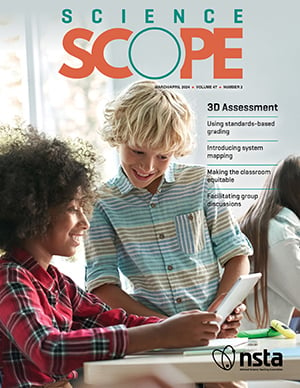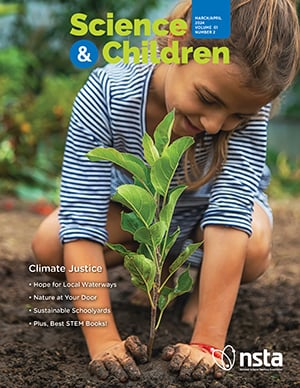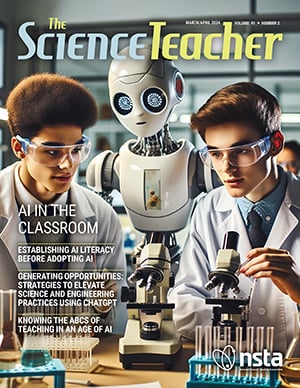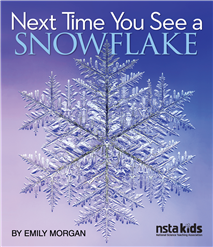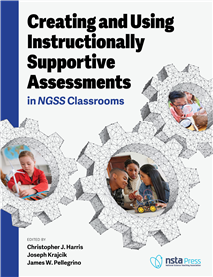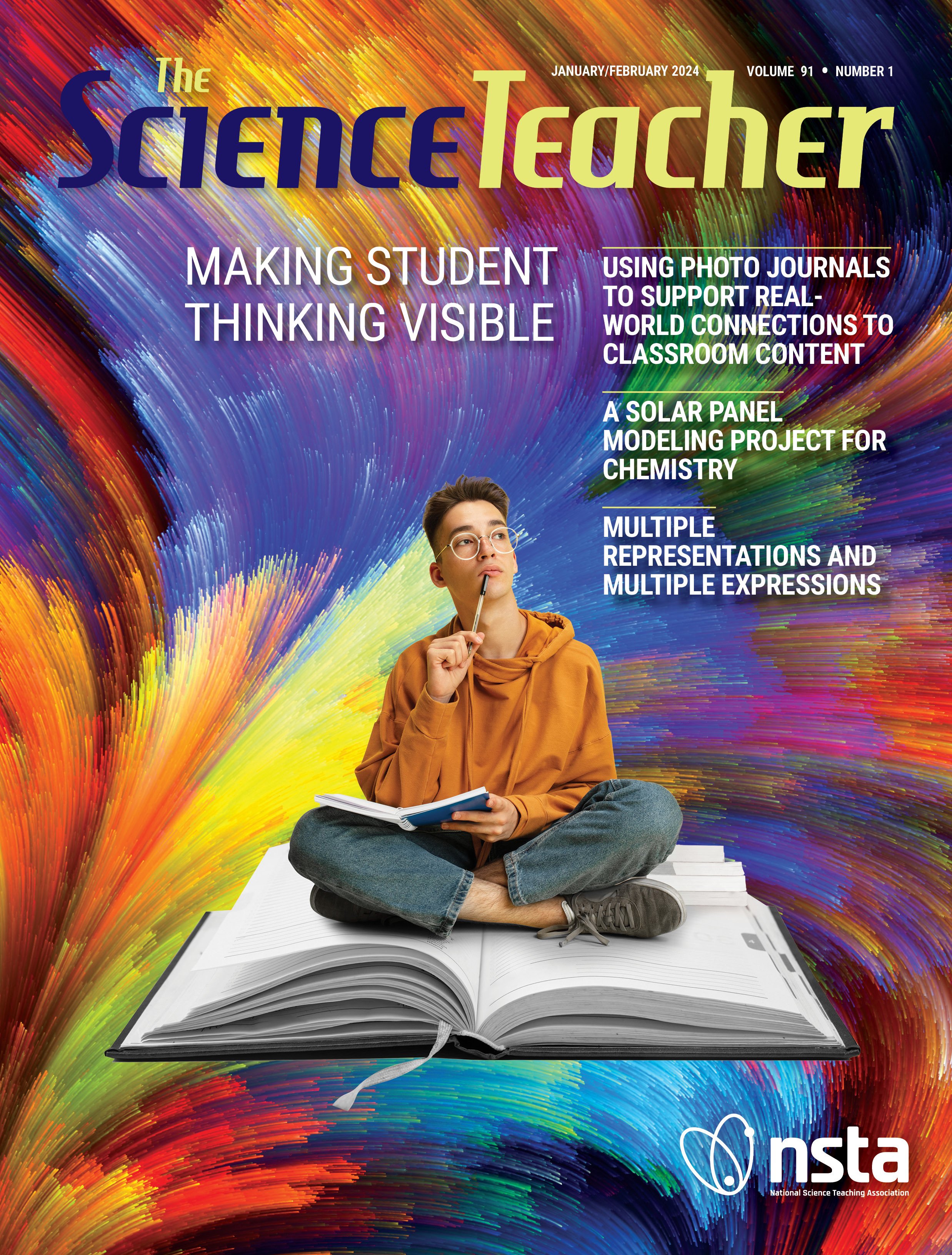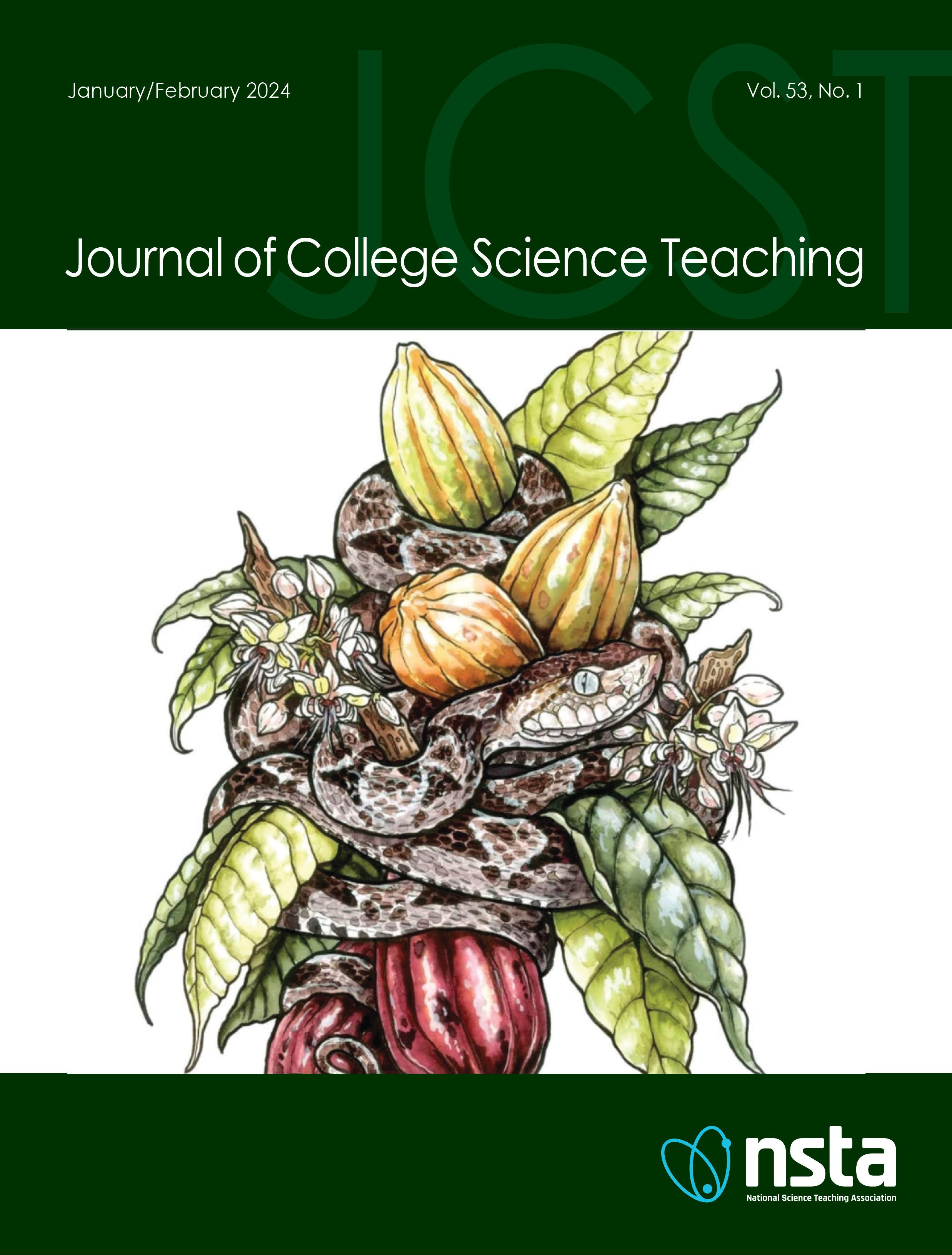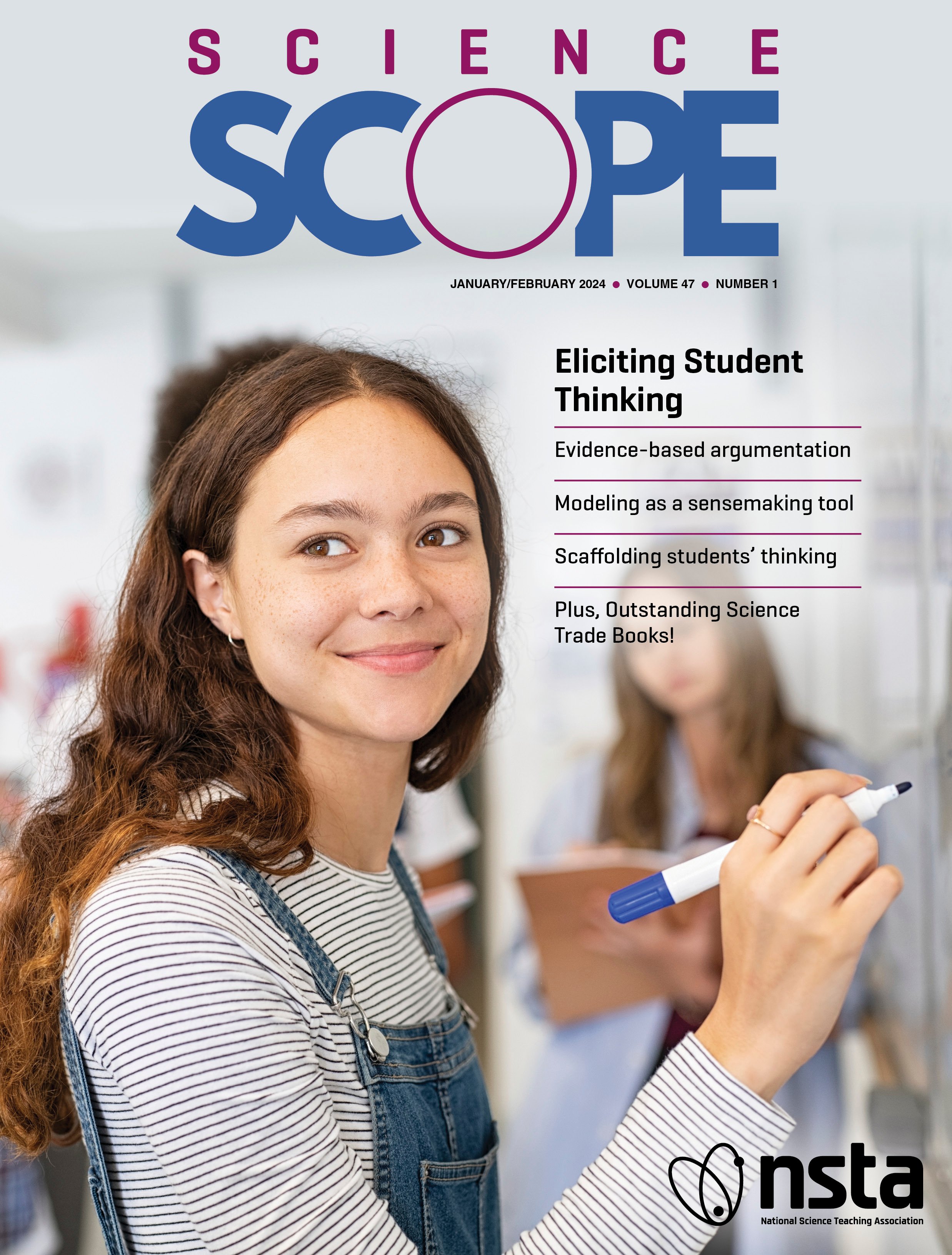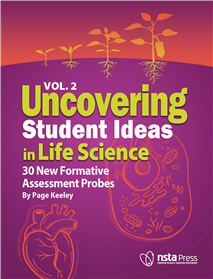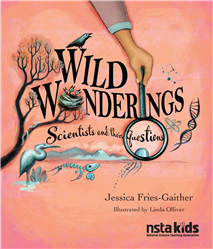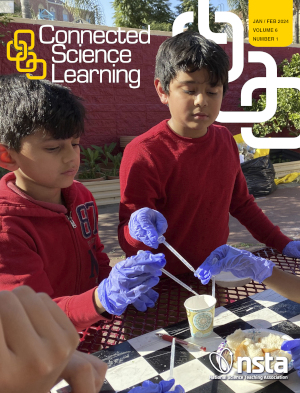All Resources
Journal
eBook
Creating and Using Instructionally Supportive Assessments in NGSS Classrooms (e-book)
Imagine handing out assessments that spark enthusiasm rather than dread. In six easy-to-follow steps, this book empowers science teachers to create tasks that guide students to use their knowledge, not just memorize facts. The NGSA design process tra...
NSTA Press Book
Creating and Using Instructionally Supportive Assessments in NGSS Classrooms
Imagine handing out assessments that spark enthusiasm rather than dread. In six easy-to-follow steps, this book empowers science teachers to create tasks that guide students to use their knowledge, not just memorize facts. The NGSA design process tra...
By Christopher Harris, Joe Krajcik, James Pellegrino
Web Seminar
The National Climate Assessment is a major scientific report developed by several government agencies that describes climate change in the United States. This session will highlight the science found in the report, and then explore resources that sup...
eBook
Uncovering Student Ideas in Life Science, Volume 2: 30 New Formative Assessment Probes (e-book)
Here’s a fresh way to help your students learn life science by determining how you can help them learn best. Uncovering Student Ideas in Life Science, Volume 2, offers 30 new formative assessment probes—engaging questions that can reveal what stu...
Journal Article
Journal Article
Though zoos and aquariums have become increasingly focused on conservation education, their menageries of unique and diverse learning opportunities have been underutilized. This practical NGSS-aligned guide to field trips at zoos and aquariums is wri...
By ,
Journal Article
The goal of the University of Southern California (USC)/Norris Comprehensive Cancer Center funded Wonderkids Program is to develop medical and cancer themed curricula for elementary students in an after-school program in the Los Angeles area. Wonder...
By , , ,
Journal Article
Co-Development of a Museum-Based Scientist-Teacher Partnership
Scientist-led K-12 outreach offers many benefits to scientists, teachers, and students. However, according to recent research, many of these programs are top down rather than collaborative. Our team facilitated a museum-based scientist-teacher partne...
By , ,
Journal Article
Becoming Botanical Garden Educators: Engaging High School Students in Botany through the use of Flip
It is critical to develop students’ science communication skills as they progress through their education. One way in which this goal can be accomplished is through the integration of Flip (formerly known as Flipgrid) into educational programs. Fli...
Journal Article
Creating Equity for Black Science Students
Creating equity for Black science students requires deep listening and can be achieved with phenomenological qualitative research and a community of inquiry. The phenomenological study examines the lived experience of a phenomenon of a participant. T...
Journal Article
Redesigning an environmental curriculum for student engagement
Apart from equipping learners with 21st-century skills, environmental science (ES) education fosters problem-solving, creativity, critical thinking, and a sense of responsibility and agency in children. Community science centres contribute to ES educ...
By , , ,
Journal Article
Three Transformative Leadership Practices
What does it take to prioritize science instruction in an elementary system? In this article, we’ll examine three transformative leadership practices underway in a Title-1 school district in Central Phoenix and their role in shifting the district c...
By Rebecca Abbott, Meredith Moran, and Alicia Baier Wideman,
Journal Article
Making Science Accessible for All
It’s time for a change in mindset. We must shift our focus toward recognizing the assets and strengths of our students as a pivotal starting point. While it’s easy to identify deficits, gaps, and challenges, we must also acknowledge our students�...
By Elizabeth Barrett-Zahn
Web Seminar
Did you know that NASA has around two dozen satellites that continually monitor our home planet to help us better understand and protect it? Learn more about NASA’s Earth-observing missions and do a deep dive into the Global Precipitation Measu...
Journal Article
Career of the Month: Industrial Engineer
Industrial engineers apply math and engineering principles to make systems—comprised of humans, machines, information, materials and/or energy—more efficient and effective. They can work in a wide variety of industries, as well as academia. Eliza...
Journal Article
How Can We Make Our Students’ Thinking Visible?
Understanding our students’ thinking is paramount to moving a lesson forward and seeing where misconceptions exist. By providing particular prompts, we can uncover their thinking, take action, and enhance the overall learning experience for our stu...
Journal Article
Becoming Scientifically Literate: Developing Epistemic Practices through Reading Scientific Papers
To help students confront pseudoscientific claims and misinformation in their everyday lives, it is important to develop the epistemic practices of scientists in the classroom. Many of these practices can be illuminated by challenging students to rea...
By ,
Journal Article
Too often, science courses (e.g, biology, chemistry, and physics) are disconnected from one another. When this happens, students often don’t see how the different disciplines relate to one another. For example, we have heard students ask, “Which...
By , ,
Journal Article
The purpose of this article is to describe a lesson aimed at teaching students the function of enzymes in order to obtain mastery of NGSS Standard HS-LS1-2. The lesson is designed to engage learners through the frameworks of the 5E process and sensem...
By ,
Journal Article
Exploring Student Perceptions of Engagement During Maker-centered Instruction
This article explores the levels of engagement that students experience during maker-centered instruction, with a particular focus on students in two secondary STEM classrooms. The authors first define key terms related to making and maker-centered i...
By , , ,
Journal Article
Teaching for Tomorrow: Scientific Literacy in the Classroom
This article describes the integrated Coding, Science, Technology, Engineering, and Mathematics (CSTEM) full-year course that aligns mathematical skill-building and computational thinking while applying them to real-world problems and the ways in whi...
By , ,
Journal Article
Conceptual and Mathematical Evolutionary Fitness models
Biological evolutionary models have become popular tools for inquiry. Models can help expose complex systems and guide experimentation. Not all research questions require modelling. However, evolutionary models are helpful at quantitative predictions...
Journal Article
Using Photo-journals to Support Real-World Connections to Classroom Content
Many teachers are asked by their students how the science content they are learning in class matters in the "real world." Although these connections may be clear to expert teachers, students often require additional support and scaffolding to see how...
Journal Article
Science L.I.A.R.S.: A Game to Combat Misinformation
Science in the wild — misinformation beyond the boundaries of the science classroom and curated media sources — threatens our culture Here, I present one fun classroom activity, in an engaging game format, that fits in the NGSS framework and can ...
Journal Article
A Solar Panel Modeling Project for Chemistry
The Solar Panel Modeling Project challenged 10th-grade chemistry students to apply knowledge of Atomic Models to explain electricity generation in a solar panel, deepening their scientific literacy about climate solutions. Here, I describe the proje...
Journal Article
Engaging Students in Waste-to-Energy Research Using Model Biodigesters
Anaerobic digestion (AD) is a natural process whereby microorganisms break down organic material in the absence of oxygen. Biodigesters (sealed tanks where AD occurs) are complex ecological systems where different microorganisms work together to prod...
By , , , , ,
Journal Article
Rules of Teaching That I learned in My Student Years
As teachers we commonly learn our subject matter in high school and college. We acquire more knowledge in graduate school and in life experiences. At what stage do we learn how to teach? Answers vary. This article is about how I learned much about te...
Journal Article
Journal Article
This two-part article will describe four powerful key ideas embedded in the Framework and the NGSS and ways in which early educators might leverage them with consideration to the unique characteristics of young children and developmentally-appropriat...



